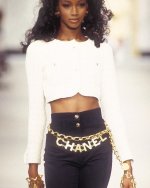gunhilltrain
Multi-unit control
- Joined
- Mar 1, 2018
- Posts
- 9,505
How would you like this company name on your résumé? And how did that happen? The company was founded in Mexico City eighty years ago, and they forgot to check what it meant in English. (Much like how General Motors forgot to check what Nova meant in Spanish). I suppose when they started their American division, they could have come up with a different name but they didn't. (Mazda cars come from a Japanese company with another name.)Because it isn't a risk. I fully expect a British writer to use terms like lorry and biscuit where appropriate, it adds flavor to the writing.
We shouldn't make our writing generic because we don't have faith in our readers. They can either figure it out from the context or open a new tab and Google it.
We had a discussion here about vocabulary, and using words that aren't in common usage, and it really isn't any different.
One of my FMCs drives a McLaren. I doubt if anyone got offended and stopped reading the story because they weren't familiar with that particular make.
https://www.nimbleads.com/wp-content/uploads/2022/01/Bimbo-Bakeries-USA.jpg

